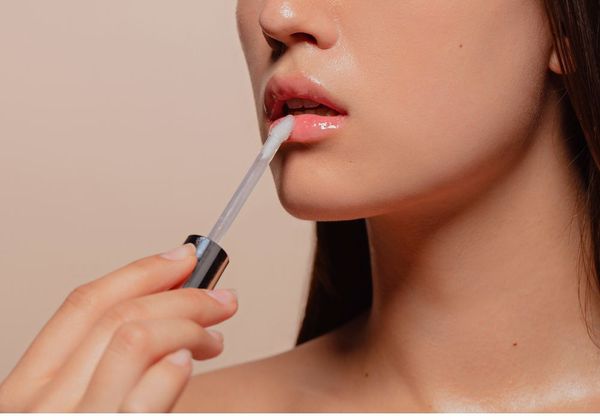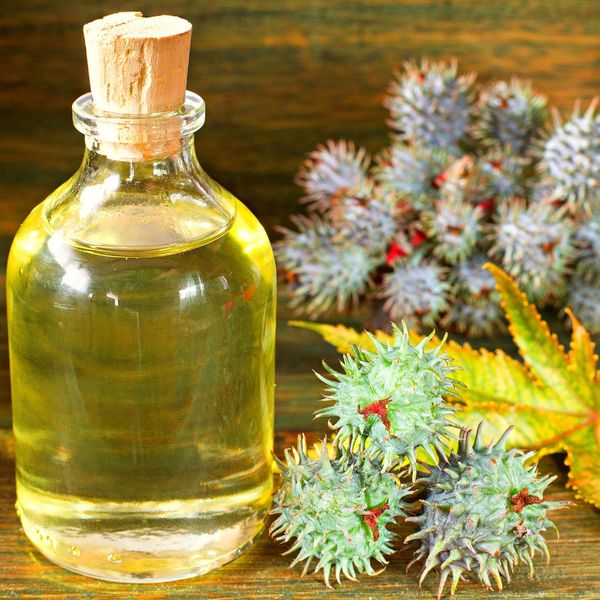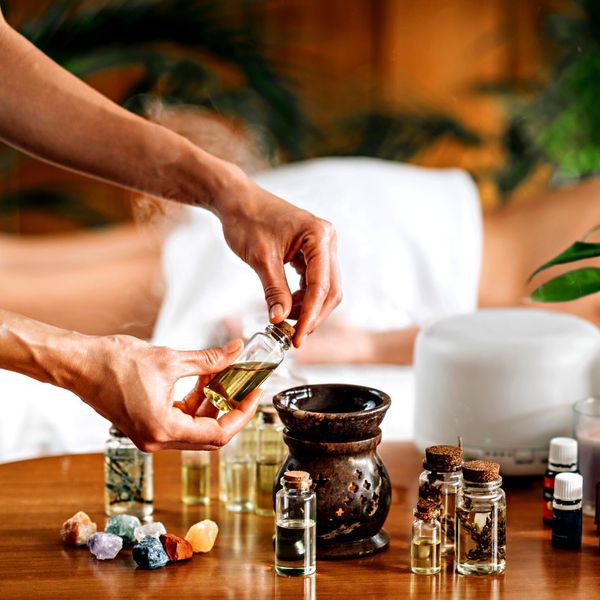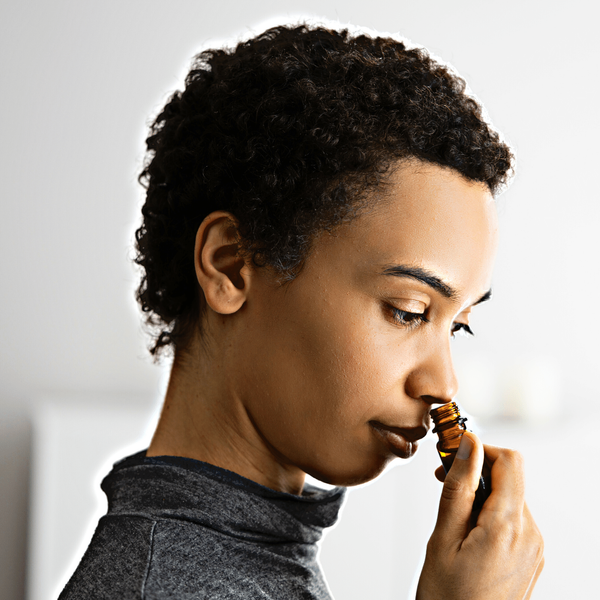There's nothing like a nice cup of tea to soothe the vocal cords and prepare the voice for a performance. Many singers swear by tea as the best drink for them before a show. Some even say that it helps them hit those high notes!
And once they're DONE—both physically and mentally, many then ALSO turn to tea as a way to relax and rejuvenate their vocal cords.
Sounds easy enough, right!? You're sold! But with so many different types of tea on the market, it can be tough to know which one is right for you. That's why I've put together this list of the 11 best teas for singers, categorized by type.
So whether you're looking for herbal teas that can help keep your windpipes healthy or heal them back up after an amazing performance, stay tuned! I've got you covered!
Full Disclosure: WholisticHealthJunkie.com is a member of the Amazon Services LLC Associates Program and other affiliate programs, meaning that any links you click below may result in commissions at no extra cost to you. And now that THAT'S out of the way...Happy Scrolling! ;)
Ginger Tea
If you're a singer, then you know that taking care of your voice is essential. And one of the best ways to do that is by drinking ginger tea. That's right - ginger tea! This delicious and healthy beverage can do wonders for your vocal cords. Here are some of the benefits of drinking ginger tea for singers.
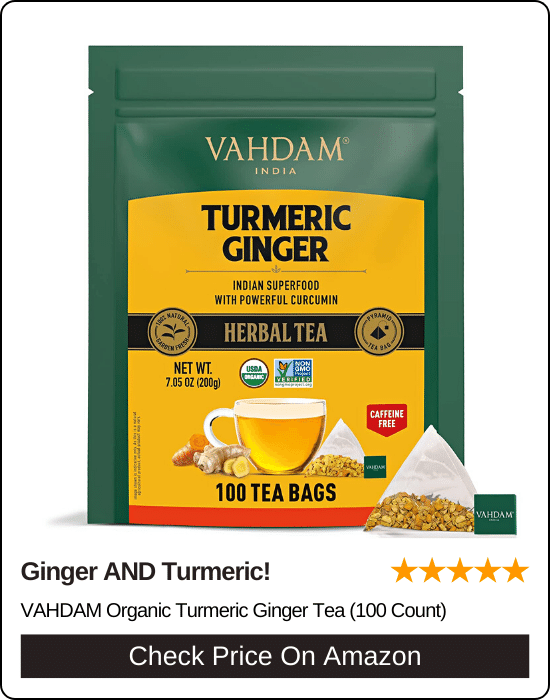
Soothes the Throat
One of the main benefits of ginger tea for singers is that it helps to soothe the throat. When you drink ginger tea, the warmth and steam help to relax the muscles in your throat. This can relieve pain and discomfort caused by strained vocal cords. In addition, the honey in ginger tea can coat your throat and protect it from irritants.
Reduces Inflammation
Another great benefit of drinking ginger tea is that it reduces inflammation. This is important because inflammation can lead to dysphonia, which is a condition that causes hoarseness and difficulty speaking. By reducing inflammation, ginger tea can help keep your vocal cords healthy and prevent dysphonia.
Improves Circulation
Another benefit of drinking ginger tea is that it improves circulation. This is important because good circulation promotes healing and prevents infection. When you drink ginger tea, the dilated blood vessels improve circulation throughout your body, including to your vocal cords. This improved circulation can speed up the healing process if you have a sore throat or other vocal cord injury.
As you can see, there are many benefits of drinking ginger tea for singers. So next time you're feeling a little hoarse or your throat is sore, reach for a cup of this delicious and healthy beverage! Your vocal cords will thank you.
Peppermint Tea
When it comes to singing, everyone wants to hit the high notes. But sometimes, no matter how much you warm up, those notes just won't cooperate.
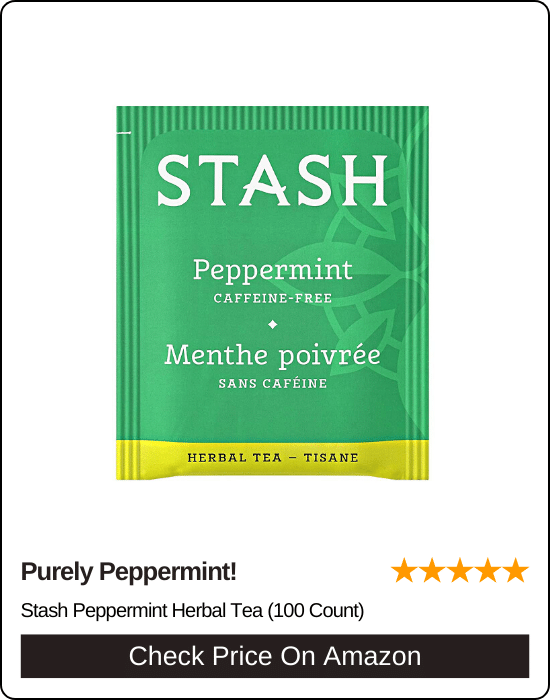
Improves Breathing Control
That's where peppermint tea comes in. Sipping on a cup of this hot tea before rehearsal or a performance can help clear your throat and improve your breath control, making it easier to sing those high notes with confidence. Here's a closer look at how peppermint tea can benefit singers.
Helps Fight Respiratory Infections
Peppermint tea is loaded with menthol, a compound that has potent medicinal properties. Menthol has been shown to be an effective treatment for respiratory infections and is often used as a natural remedy for congestion, colds, and coughs. When inhaled, menthol also has the ability to open up the airways and improve breathing. This makes peppermint tea an ideal drink for singers, who rely on deep breathing to control their vocal range and produce powerful sound.
Can Soothe An Upset Stomach
In addition to its effects on the respiratory system, peppermint tea can also help soothe an upset stomach—another common issue that singers face before a big performance. Sipping on a cup of peppermint tea can help relax the muscles in your GI tract and reduce inflammation, providing relief from cramps, bloating, gas, and diarrhea. Plus, the soothing aroma of peppermint tea can help calm nerves and ease anxiety.
Chamomile Tea: The Secret Weapon of Professional Singers
Chamomile tea is often thought of as a soothing bedtime drink, but it actually has numerous benefits for singers. It's easily accessible and relatively inexpensive so let's see how it may be able to help YOU.
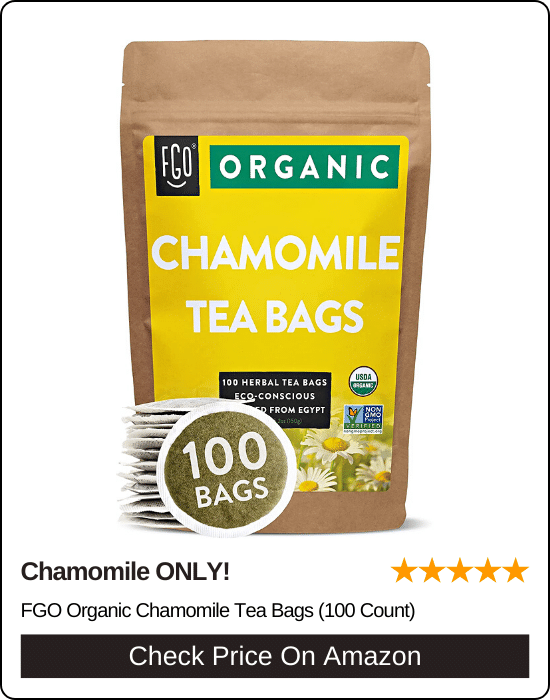
Calming Effect
The calming effect of chamomile tea can do wonders for a singer's nerves. If you tend to get anxious before performances, try drinking a cup of chamomile tea an hour or so before you go on stage. The calming properties of the tea will help to ease your nerves and allow you to focus on your performance.
Soothes Sore Throat & Reduces Inflammation
Chamomile tea can also help to soothe the throat and reduce inflammation. If you're struggling with vocal strain, try drinking a cup of chamomile tea several times a day. The anti-inflammatory properties of the tea will help to reduce swelling in the throat and allow your voice to heal.
Lemon Myrtle Leaf Tea
Let's face it, being a singer is hard work. You have to constantly be on the lookout for ways to protect your vocal cords and keep them healthy and lemon myrtle leaf may actually be able to assist! And because this is one I, personally, had never heard of, I thought I'd start of by sharing what it even IS...
What is Lemon Myrtle Leaf Tea?
Lemon Myrtle Leaf Tea is made from the leaves of the lemon myrtle tree, which is native to Australia. The leaves are dried and then brewed to make a tea that has a lemony flavor with hints of eucalyptus. Because of its high concentration of citral, Lemon Myrtle Leaf Tea is said to have antibacterial and antifungal properties I'll explain in further detail below.
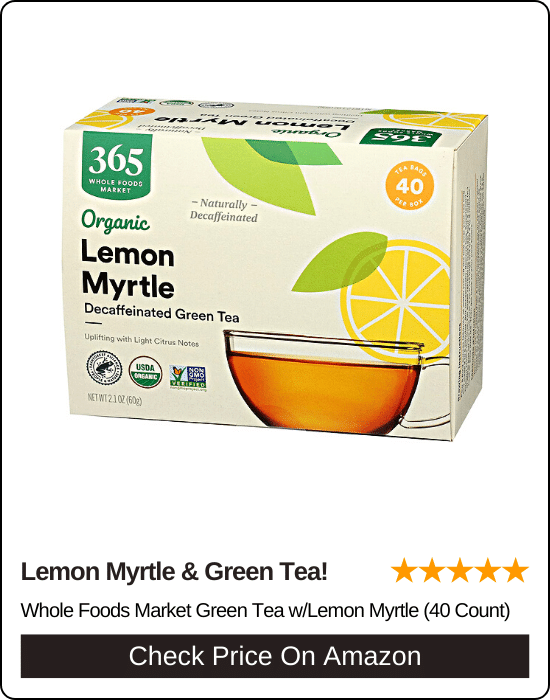
Antibacterial and Antifungal
The antibacterial and antifungal properties can help to keep your vocal cords healthy by destroying any harmful bacteria or fungi that might be present.
Soothing And Anti-Inflammatory
This tea can help to soothe your throat and alleviate any inflammation or discomfort that you might be feeling.
Lubricates Vocal Cords
Lemon Myrtl can help to increase your saliva production, which can in turn help to keep your vocal cords lubricated and prevent them from drying out. Finally, the tea can help to improve your overall respiratory health, which is essential for singers.
In A Nutshell
Lemon myrtle leaf is rich in antioxidants and essential oils that can help soothe the throat and protect the vocal cords. It can also help boost immune function and fight off infection. Pro-Tip: Be sure to sweeten your lemon tea with honey instead of sugar, as sugar can aggravate the throat.
Licorice Root Tea
As a singer, you know the importance of taking care of your vocal cords. And while there are many products on the market that claim to do just that, sometimes the best solutions are found in nature. Enter licorice root tea.
This herbal tea has many benefits for singers, from soothing irritated vocal cords to reducing inflammation. Let's take a closer look at why licorice root tea should be a staple in your vocal care routine.
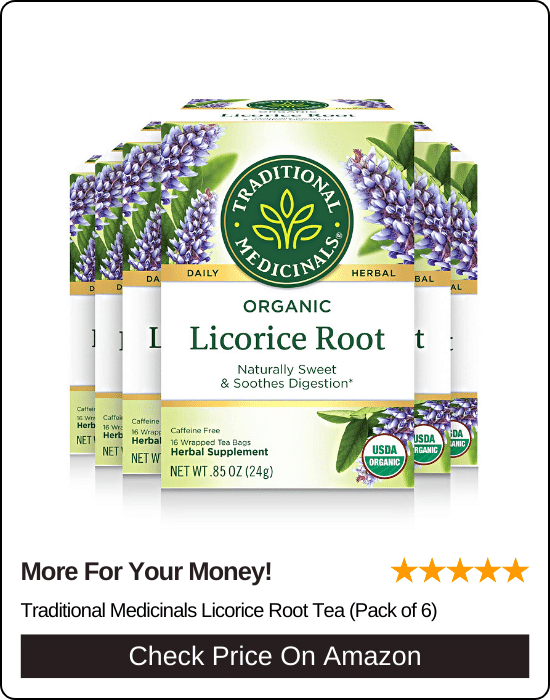
Soothes Irritated Vocal Cords
Licorice root tea is well known for its ability to soothe the throat and relieve coughing. But did you know that it can also help soothe irritated vocal cords? The anti-inflammatory properties of licorice root help to reduce swelling in the vocal cords, which can lead to improved vocal quality.
Reduces Inflammation
Inflammation is often the root cause of many health problems, including those that affect the voice. When the vocal cords are inflamed, it can lead to hoarseness, a sore throat, and even laryngitis. Licorice root tea is a natural anti-inflammatory agent that can help reduce inflammation in the vocal cords and improve overall vocal health.
Boosts immune system
A strong immune system is crucial for singers, as any cold or viral infection can wreak havoc on your voice. Licorice root tea contains several compounds that have been shown to boost the immune system, including glycyrrhizic acid and flavonoids. By drinking licorice root tea regularly, you can help keep your immune system strong and reduce your risk of developing an infection that could damage your vocal cords.
Japanese Green Tea
Your vocal health is very important, and what you drink can have a major impact on your vocal cords. When you are looking for a beverage to keep your vocal cords hydrated, it is important to find one that does not contain any acidic or sugary components... such as green tea!
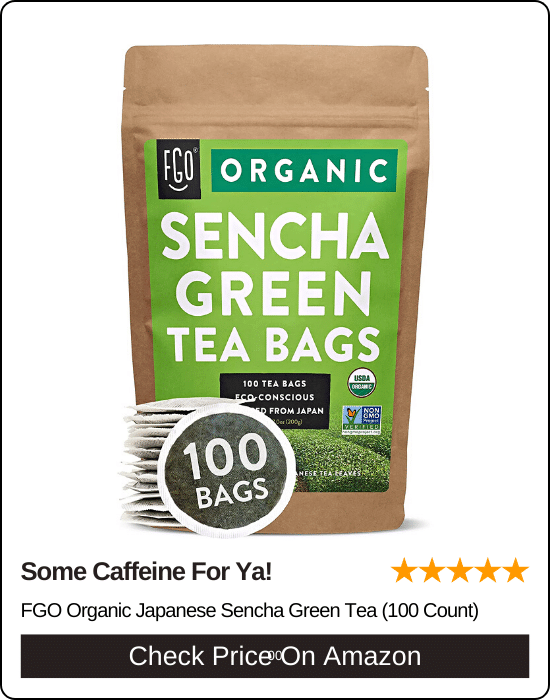
High In Antioxidants
Japanese Green Tea is the perfect drink for vocalists because it is naturally calorie-free and contains no sugar. In addition, the high amounts of antioxidants in green teas can help to protect your vocal cords from damage.
Promotes Relaxation
As a singer, it is important to be relaxed when you perform. The reason for this is because tension can lead to tightness in your vocal cords, which can impact the quality of your singing voice.
Propolis Tea
If you're a singer, there's one thing you can't live without: your voice. And if you're looking for a way to keep your voice in tip-top shape, look no further than propolis tea. Propolis is a resin that bees collect from trees and use to build their hives. This resin is then turned into a tea that has a plethora of benefits for singers, including the prevention of throat infections, the reduction of mucus buildup, and the soothing of inflamed vocal cords.
I couldn't find a propolis TEA on Amazon to share with you so I chose a SPRAY from a very reputable company, Beekeepers Naturals instead! Doesn't get much easier than a few quick pumps to the back of the throat, right? ;)

Prevents Throat Infections
One of the most common problems that singers face is throat infections. These infections can be caused by a number of things, including overuse of the voice, allergies, and acid reflux. While there are many different treatments for throat infections, propolis tea is one of the most effective. That's because propolis contains antibacterial and antifungal properties that help to fight off the infection-causing bacteria and fungi.
Reduces Mucus Buildup
Another common problem that singers face is mucus buildup. Mucus buildup can cause a number of problems, including difficulty breathing and hoarseness. Propolis tea helps to reduce mucus buildup by thinning out the mucus and making it easier to expel from the body.
Soothes Inflamed Vocal Cords
Inflamed vocal cords are another problem that singers often face. When the vocal cords become inflamed, they can swell up and make it difficult to sing. Propolis tea helps to soothe inflamed vocal cords by reducing swelling and inflammation in an irritated throat.
Ginseng Tea
Ginseng is an herb that is native to Asia and has been used in traditional Chinese medicine for centuries. It is still used today for a wide variety of purposes, including improving cognitive function, treating anxiety and depression, and boosting energy levels. Ginseng tea is made by steeping the roots of the ginseng plant in hot water and has long been used as a remedy for issues like sore throats and colds.
(Heads up: this is good ol' loose-leaf tea! You've been warned ;)
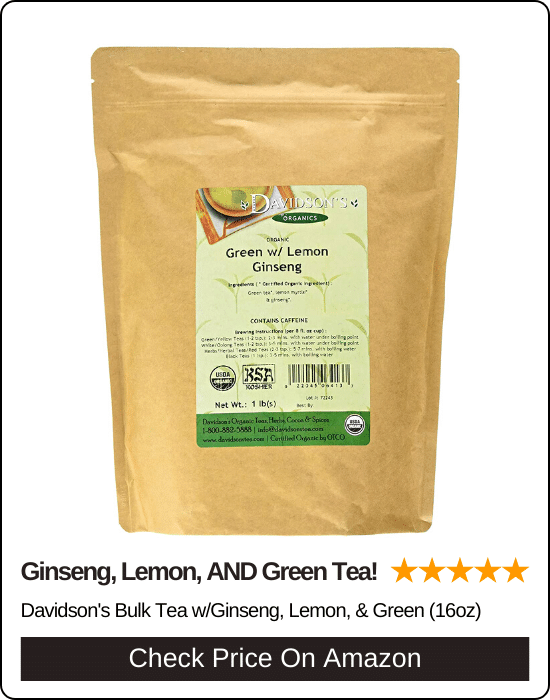
Anti-Inflammatory
But what about singing? Well, it turns out that ginseng tea can do wonders for your vocal cords! The active ingredients in ginseng, ginsenosides, have anti-inflammatory properties that can help soothe irritated vocal cords.
Collagen-Promoting
In addition, ginsenosides have also been shown to stimulate the growth of collagen, which is the main protein component of vocal cords. This means that drinking ginseng tea can help keep your vocal cords healthy and strong!
Fennel Tea
Let's face it, being a singer is hard work. Not only do you have to have the talent, but you also have to put in the hours of practice to perfect your craft. And even then, there's no guarantee of success. So what can you do to give yourself a little bit of an edge? The answer may surprise you: drink fennel tea.
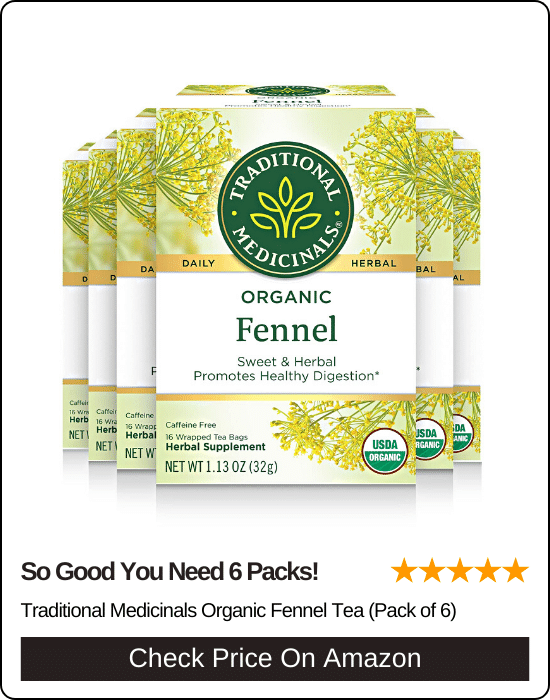
Soothe Tension & Ease Nerves
Fennel tea has a number of benefits that can help singers. For starters, it can help to soothe the nerves and ease tension. This is important because when you're nervous, your muscles tend to tense up, which can adversely affect your vocal cords. By drinking fennel tea before a performance, you can help to keep your vocal cords relaxed and prevent them from tensing up.
Improve Breathing
Fennel tea can also help to improve your breathing. This is because fennel contains an ingredient called anethole, which has bronchodilating properties. This means that it helps to open up the airways and make it easier to breathe. When you're singing, proper breathing is essential in order to hit those high notes. By drinking fennel tea, you can help ensure that you're taking in enough oxygen to sing your best.
Aids With Digestion
Lastly, fennel tea can help with digestion. This is important because if your stomach is upset, it can affect your performance. Drinking fennel tea before singing can help to settle your stomach and prevent any digestive issues from affecting your performance.
Yaupon Tea
Looking for a new tea to try? Yaupon tea is an herbal tea made from the leaves of the yaupon holly plant, and it just so happens to be an excellent choice for singers. Here's why:
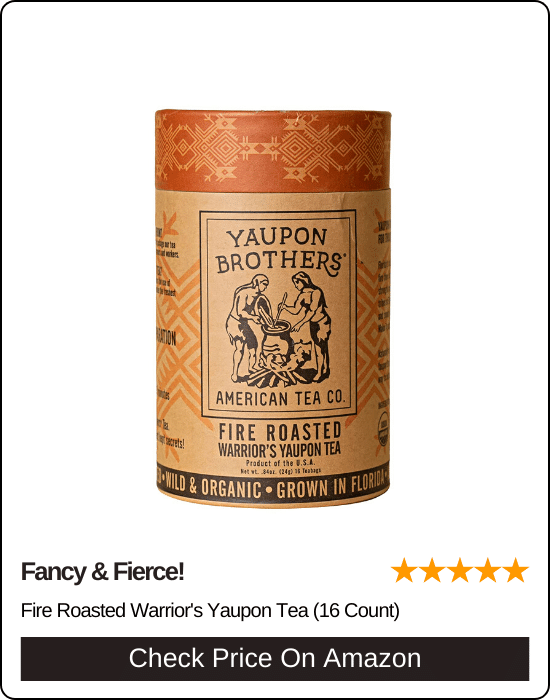
Caffeine-Free
As any singer knows, caffeine is a big no-no before a performance. Caffeine can cause jitters and make it difficult to focus, two things that are definitely not conducive to a great singing performance. Yaupon tea is naturally caffeine-free, so you can enjoy it without having to worry about unwanted side effects.
High in Antioxidants
Antioxidants are important for overall health, but they're also beneficial for vocal health. That's because they help to fight off free radicals, which can damage the delicate tissues of the vocal cords. Drinking yaupon tea regularly can help keep your vocal cords healthy and functioning properly.
Soothe Sore throats
The active ingredient in yaupon tea, cytophenazine, has anti-inflammatory properties that can help soothe a sore throat. In addition, the tannins in yaupon tea can help to dry out mucus, making it easier to expel from the throat.
Throat Coat Tea by Traditional Medicinals
This one is a BONUS because it has MANY of the beneficial key ingredients discussed above and more! You ARE welcome! #FanFavorite
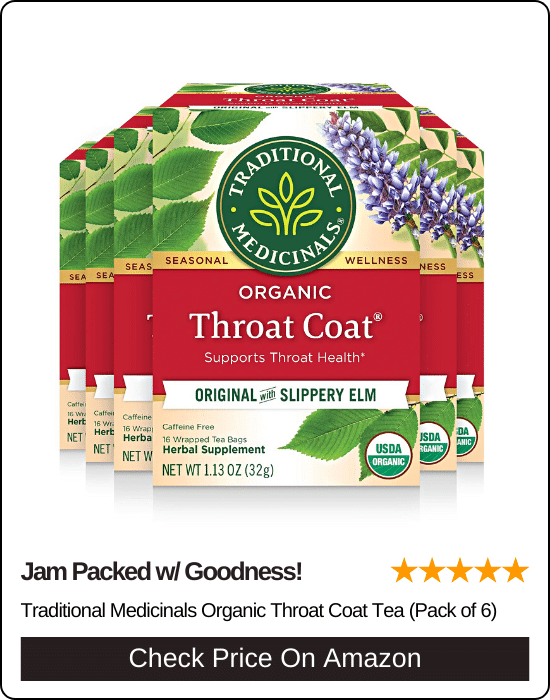
FAQ's
Is caffeinated tea beneficial or harmful for singers?
Caffeinated tea, such as oolong tea, is beneficial for singers because it helps to open up the airways and make it easier to breathe. In addition, caffeine can help to focus the mind and prevent jitters, both of which are helpful when trying to perform. Caffeine should be avoided before a performance, however, as it can cause jitters and make it difficult to focus.
Is fermented tea, like kombucha, beneficial or harmful for singers?
Fermented tea is definitely beneficial for singers, as it helps increase vocal range and strength. However, it's important to note that not all fermented teas are created equal – kombucha, for example, contains alcohol which can be harmful to singers.
So be sure to choose a fermented tea that is specifically made for singers, such as Vocalzone Throatcare Tea. This tea is made with natural ingredients and herbs that help soothe the throat and improve vocal range and strength.
What type of tea is best for singing?
If you're looking for a tea to help improve your vocal performance, licorice root tea is traditionally thought to be one of the most helpful.
Licorice root has been used for centuries as a folk remedy for digestive and respiratory issues, and its anti-inflammatory properties may also help soothe the throat.
There are many different licorice root teas available commercially, (like the one listed above) or you can make your own by steeping licorice roots in hot water for several minutes.
What is the best drink for singers?
Tea! Tea contains antioxidants that can help to protect the voice from damage caused by free radicals. It also has anti-inflammatory properties that can help to reduce inflammation in the throat. And if you're looking for a little boosting action, green tea contains caffeine to give you an extra edge... but don't overdo it or it can backfire!
Is black tea good for singers?
Yes! Black tea is a great way to help soothe your vocal chords and keep them healthy. The caffeine in black tea can also help to perk you up and keep you energized while you're performing.
Is tea good after singing?
Yes, tea is definitely good after singing. The warmth of the tea helps soothe your throat and the antioxidants can help protect your vocal cords. Plus, tea can help hydrate you which is always important for singers. Just be sure to use a milder tea since anything too spicy or acidic can irritate your vocal cords. Honey is also a great addition to tea if you're looking to soothe your throat.
Let's Recap!
As a singer, it's important to take care of your vocal cords. And while there are many products on the market that claim to do just that, sometimes the best solutions with the most health benefits are found in nature. That's why I present you with the best tea for singers... 11 of them to be exact! So add a good tea to your vocal care routine and sing to your heart's content!




